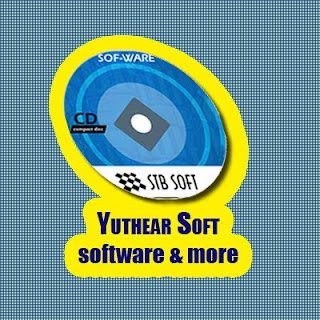


ខេត្តកំពង់ឆ្នាំង ៖ ជាយូរលង់ណាស់មកហើយ ក្បាច់គុនបុរាណខ្មែរ គឺមានបែបផែនច្រើនប្រភេទច្រើនវិជ្ជាការ ។ វិជ្ជាគុនទាំងនោះមានក្បាច់ខុសៗគ្នាដែលខ្មែរជំនាន់ដើម បានហាត់រៀនដើម្បីការពារខ្លួនផងដែរ ។ វិជ្ជាគុនទាំងនោះមានដូចជា គុនល្បុក្កតោ គុនដាវ គុនខែល គុនលំពែង គុនកាំបិត គុនដំបងវែង ដំបងខ្លី និងគុនដៃ។ល។
ដោយឡែកវិជ្ជាគុនចំបាប់ក៏ជាវិជ្ជាគុនបុរាណមួយផង ដែរ ក្នុងបណ្ដាវិជ្ជាគុនខាងលើវិជ្ជាគុនចំបាប់ត្រូវបានបុព្វបុរសខ្មែរ យើងប្រើប្រាស់ជាប្រយោជន៍ការពារខ្លួន និងជាការលេងកំសាន្ដក្នុងឱកាសពិធីបុណ្យឡើងអ្នកតា បុណ្យប្រចាំភូមិ និងបុណ្យចូលឆ្នាំជាដើមដែលភាគច្រើនគេលេងកំសាន្ដតាមវត្ដអារាមនានា។
លោកសុក ធួក ប្រធានវប្បធម៌ និងវិចិត្រសិល្បៈខេត្ដកំពង់ឆ្នាំងបានបញ្ជាក់ថា ក្បាច់គុនចំបាប់នេះតាមការសិក្សាស្រាវជ្រាវ គឺបានកើតឡើងនៅសតវត្សទី១២ នៃគ្រិស្ដសករាជដែលការបញ្ជាក់បែបនេះ គឺលោកសំអាងថា នៅតាមប្រាសាទព្រះខ័ន ទីលានជលដំរី គឺគេឃើញមានរូបចម្លាក់ប្រកួតក្បាច់គុនចំបាប់នេះជាតឹកតាង។ លោកបានបន្ដថា កាលពីដើមឡើយការប្រកួតក្បាច់គុនចំបាប់មានដល់ទៅ១២ទឹកឯណោះ ប៉ុន្ដែអ្នកស៊ូទ្រាំក្នុងការប្រកួតបានត្រឹមតែ ៣ទឹកប៉ុណ្ណោះ គឺមានអ្នកចុះញ៉មហើយ ប៉ុន្ដែបច្ចុប្បន្នក្នុងការប្រកួតក្បាច់គុនចំបាប់នេះ គឺមានបីទឹកដែរតែគេសន្យាគ្នាថា បើភាគីណាខ្នងដល់ដី គឺជាអ្នកចាញ់ ។ ខុសកាលពីជំនាន់ដើម បើភាគីណាដួលគេសួរទៅអ្នកនោះថា “ហប ឬញ៉ម” បើអ្នកដួលនោះឆ្លើយថា “ហប” គឺគាត់អាចងើបតតាំងបានទៀត ប៉ុន្ដែបើគាត់ឆ្លើយថា “ញ៉ម” នោះ គឺគាត់ចុះចាញ់ហើយ ។ កាលសម័យរាជព្រះបាទស៊ីសុវត្ថិ អ្នកគុនចំបាប់ត្រូវបានគេកេណ្ឌឱ្យមកប្រកួតដើម្បីជ្រើសរើសអ្នក ខ្លាំងពូកែលើគេ។ ពិធីល្បងឫទ្ធិឬល្បងក្បាច់គុននេះភាគច្រើនត្រូវបានរៀបចំឡើងនៅ ក្នុងពិធីបុណ្យចូលឆ្នាំខ្មែរ។
ចំពោះអ្នកគុនចំបាប់ទាំងនោះ អ្នកឈ្នះ ត្រូវបានព្រះរាជាប្រទានរង្វាន់៥រៀល ចំណែកអ្នកចាញ់ គឺបាន៣រៀល (ប្រាក់រៀលសម័យនោះថ្លៃណាស់) ។ សព្វថ្ងៃនេះ គុនចំបាប់គេឃើញមានចាស់បុរាណខ្លះបាននាំគ្នាថែរក្សាដោយបង្ហាត់ តកូនតចៅជំនាន់ក្រោយដោយហេតុនេះហើយទើបតាមភូមិខ្លះនៅប្រទេសកម្ពុជា ពេលមានបុណ្យឡើងអ្នក តា ឬបុណ្យចូលឆ្នាំខ្មែរ ចាស់ៗទាំងនោះបានរៀបចំឱ្យមានការប្រកួតក្បាច់គុនចំបាប់នេះជាហូរហែ មកមិនដែលខានឡើយ ហើយរាជរដ្ឋាភិបាលក៏បានរៀបចំឱ្យមានកីឡាបោកចំបាប់នេះជាលក្ខណៈជាតិ និងអន្ដរជាតិផងដែរ ។ រីឯភ្លេងដែលត្រូវប្រគំក្នុងពេលប្រកួតក្បាច់គុនចំបាប់គឺមាន ត្រឹមតែឧបករណ៍ស្គរចំបាប់ពីរ (ញីឈ្មោល) និងដំបងវ៉ៃស្គរ ពីរតែប៉ុណ្ណោះ គឺគ្រប់គ្រាន់ហើយ ហើយអ្នកដែលចេះក្បាច់គុនចំបាប់នេះឱ្យតែឮស្គរចំបាប់ គឺញ័រជើងចង់ចូលប្រកួតភ្លាម៕
Reference: http://www.kohsantepheapdaily.com.kh/
If you depend on the information stored on your personal computer, you need to understand how computer viruses spread, and you should use anti-virus software to reduce the chance that a computer virus will infect your programs and files.
A computer virus is a program that makes copies of itself and infects files. Computer viruses can spread to other computers and files whenever infected files are exchanged. Often infected files come as email attachments, even from people you know. The email senders have no idea that they are passing on a file with a virus in it.
Some computer viruses can erase or change the information stored on your computer, other viruses may do little or no harm to your system. Writing and releasing any virus is prohibited by university policy, and anyone who does so will be held legally accountable for damages.
There are several things that you should do to protect your computer from virus infections:
![]() Your computer starts running sluggishly.
Your computer starts running sluggishly.
![]() It shuts down unexpectedly or crashes frequently.
It shuts down unexpectedly or crashes frequently.
![]() It experiences memory problems or runs out of disc space.
It experiences memory problems or runs out of disc space.
![]() Unusual files or directories appear on your system.
Unusual files or directories appear on your system.
![]() Strange messages appear on your screen.
Strange messages appear on your screen.
Reference: http://www.learnthenet.com/english/html/37virus.htm![]() Make sure your computer runs anti-virus software. If not, buy and install it immediately.
Make sure your computer runs anti-virus software. If not, buy and install it immediately. ![]() Even if you have this software, it must be updated regularly, as new viruses appear daily. Configure the programs to automatically download updates, making it easy to stay protected. Otherwise, periodically download the updates manually.
Even if you have this software, it must be updated regularly, as new viruses appear daily. Configure the programs to automatically download updates, making it easy to stay protected. Otherwise, periodically download the updates manually. ![]() DO NOT OPEN an e-mail attachment unless you know who sent it. Even then, it's not totally safe, as a sneaky virus that has infected a friend's computer can access the e-mail address book, send a message to everyone, and attach itself. To be completely safe, scan the attachment with your anti-virus software BEFORE you open it.
DO NOT OPEN an e-mail attachment unless you know who sent it. Even then, it's not totally safe, as a sneaky virus that has infected a friend's computer can access the e-mail address book, send a message to everyone, and attach itself. To be completely safe, scan the attachment with your anti-virus software BEFORE you open it. ![]() If you receive a suspicious message, delete it immediately from your Inbox. When you delete a message, however, it's still on your system. Go into the Deleted Mail folder and delete the message again to permanently remove it from your computer.
If you receive a suspicious message, delete it immediately from your Inbox. When you delete a message, however, it's still on your system. Go into the Deleted Mail folder and delete the message again to permanently remove it from your computer. ![]() Regularly back up your files. Should your system become infected, you won't lose valuable data.
Regularly back up your files. Should your system become infected, you won't lose valuable data.